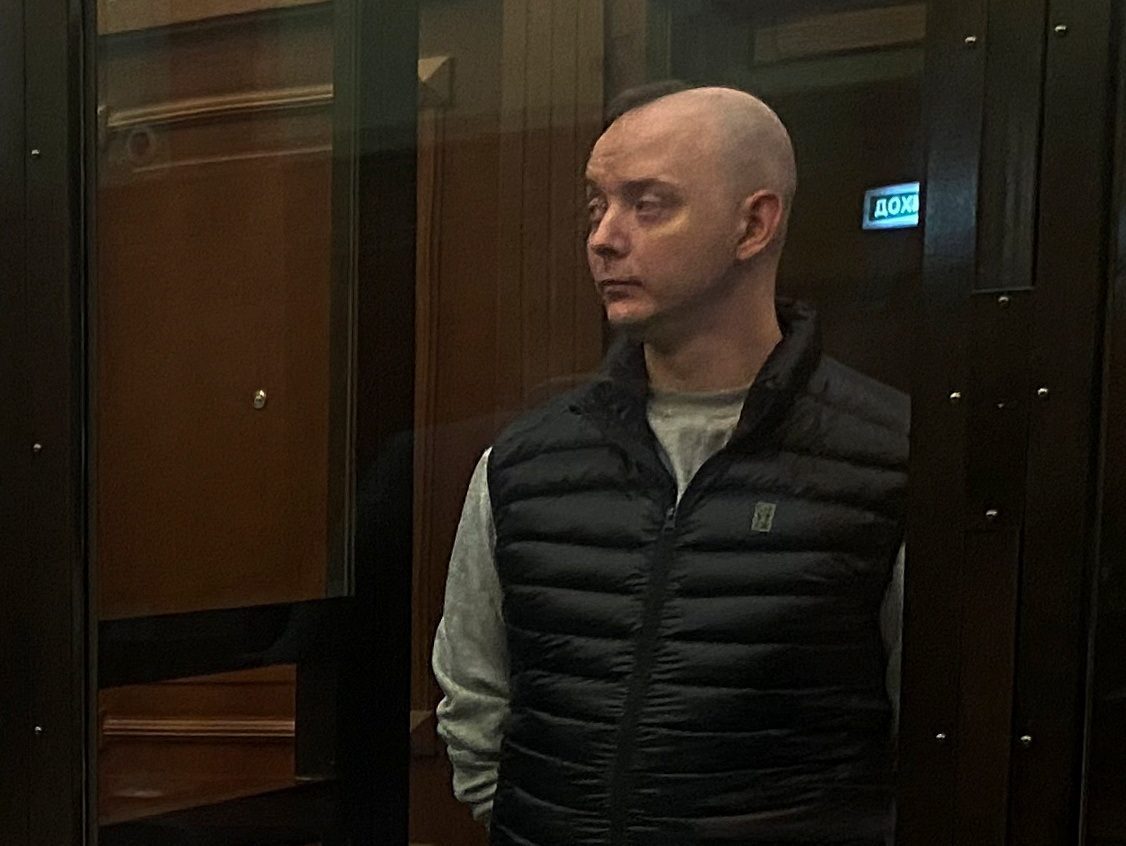SUMMARY
This is AI generated summarization, which may have errors. For context, always refer to the full article.

A Russian court on Monday, September 5, sentenced a former journalist to 22 years in prison for treason after prosecutors said he disclosed state secrets, a ruling his supporters said was a harsh punishment that showed the absence of media freedom in Russia.
Ivan Safronov, a former defense reporter for the Kommersant and Vedomosti newspapers turned adviser to the head of Russia’s space agency, was arrested in 2020 and accused of disclosing classified information.
Safronov’s lawyers said they would appeal the verdict. His supporters say the case is retribution for his reporting which exposed details of Russia’s international arms deals.
Speaking outside the courtroom, Safronov’s lawyer Dmitry Katchev said he was almost lost for words at the ruling.
“Safronov was given 22 years for his journalistic activity. I want each of you, who are looking at me now, to think whether it is worth staying in this profession. If somebody was given 22 years for doing his job,” he told reporters.
Human rights lawyer Pavel Chikov said the sentence was a “savage, demonstratively cruel punishment, corresponding to the current state of Russia.”
He said he could not find any examples of any treason cases leading to such a lengthy sentence, let alone against a journalist.
Prosecutors said Safronov shared state secrets about Russia’s arms sales in the Middle East to the Czech Republic’s foreign intelligence arm. He has denied the charges and last month rejected a plea deal that would have seen him serve a 12-year prison sentence.
Open source?
His arrest in July 2020 sparked outcry from Russian journalists, including at state-run outlets. The European Union had called on Russia to drop all charges against Safronov and release him unconditionally.
Following his arrest, the Kremlin called Safronov a “talented journalist,” but has repeatedly denied involvement with the case.
Safronov, 32, denied the charges and said the information he is alleged to have passed to the Czech Republic was all open source public information.
During the trial his legal team published links to 19 published articles and government statements that prosecutors claim constitute the “state secrets” Safronov is alleged to have passed to Czech foreign intelligence.
“Ivan never sent any secret information anywhere – for money or for free… He was an ordinary journalist, honestly doing his job,” his lawyers said in a statement.
His defense team believes the trial is retribution for Safronov revealing Russia’s plans to sell fighter jets to Egypt. The estimated $2-billion deal was scrapped soon after when the US threatened sanctions on Cairo if it went ahead.
Ahead of Monday’s court hearing, several independent Russian media outlets called for Safronov to be released. In a statement, outlets including Meduza, Novaya Gazeta, and TV Rain, said it was “obvious” Safronov was being punished for his reporting on Russia’s military procurement deals that had irked the defense ministry.
The heavy sentence – more than Russian courts typically hand down in murder cases – is seen as a blow against Russian reporting amid an intensification of the pressure put on press freedom by the Kremlin since Russia invaded Ukraine in February.
Separately on Monday, a Moscow court revoked the publishing licence for Novaya Gazeta, a flagship independent newspaper which ceased publishing days after Russia sent tens of thousands of troops into Ukraine and imposed strict new controls over media outlets. – Rappler.com
Add a comment
How does this make you feel?




![[OPINION] You don’t always need a journalism degree to be a journalist](https://www.rappler.com/tachyon/2024/06/jed-harme-fellowship-essay-june-19-2024.jpg?resize=257%2C257&crop=287px%2C0px%2C720px%2C720px)

![[Just Saying] Ted Failon, press freedom, and the Supreme Court](https://www.rappler.com/tachyon/2024/07/20240709-ted-failon-press-freedom-supreme-court.jpg?resize=257%2C257&crop=296px%2C0px%2C720px%2C720px)

There are no comments yet. Add your comment to start the conversation.